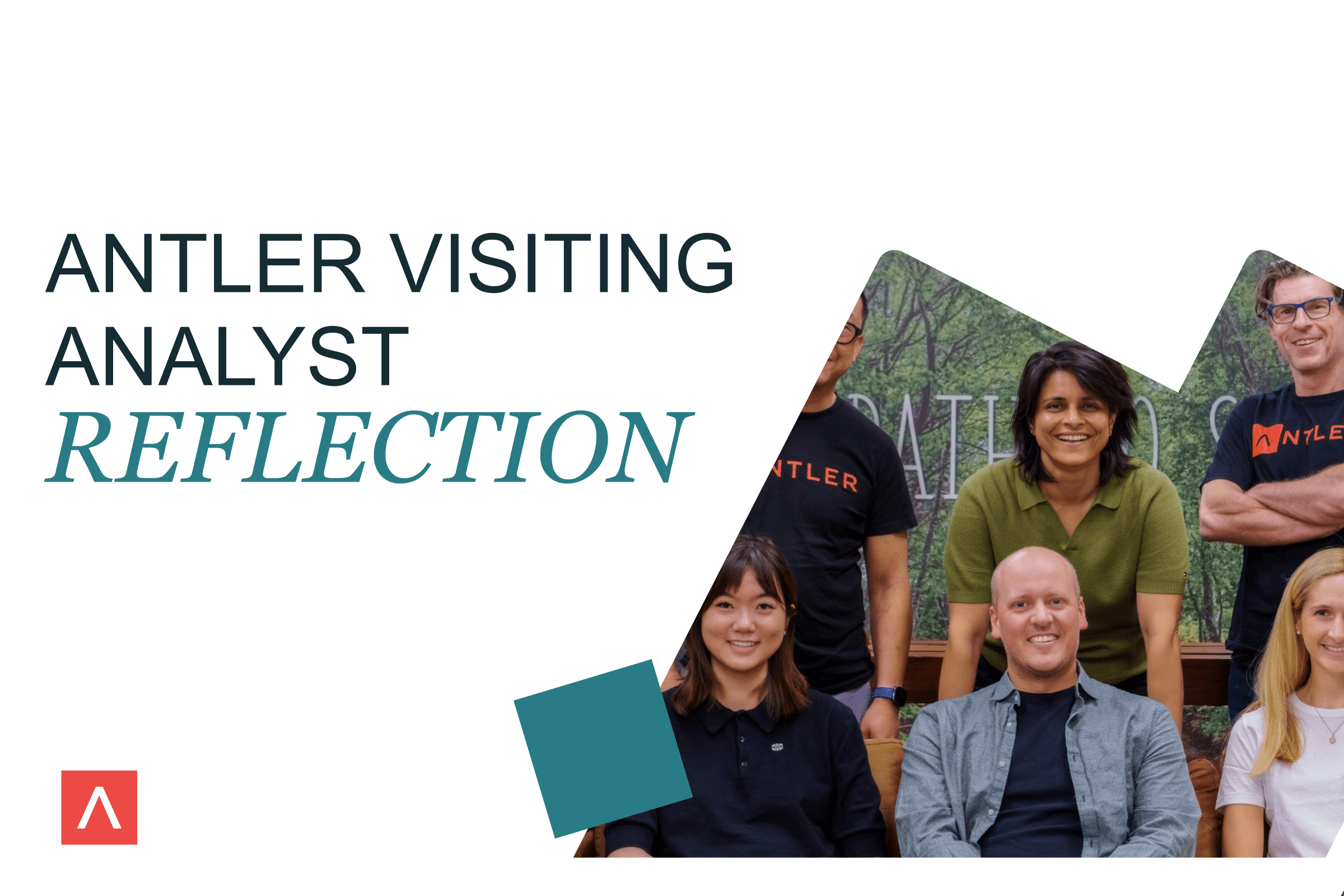When I'm about to leave my apartment, I check if I have everything with me: my wallet, my phone and keys. If you were to look in my wallet, you wouldn't find a single penny of cash, just cards.
Lots of cards.
A card for city transport, couple of cards for access to my office buildings, a couple of coffee cards, ID cards, driving license, my bank cards and the list continues to grow month after month. Why, do I do this to myself?
The Indian fintech sector has left everyone else in the dust. No matter where you are in India, you can easily pay using your smartphone, anytime, anywhere.
-— MOHIT MISHRA, ANTLER AMSTERDAM FOUNDER
The other day I was in Belgium. I had to buy a new local city transport card and then I was provided my hotel access card. In the following week, I was in Munich. I had to get Munich's city transport card in order to commute within the city.
Even though we have moved to a mobile world, we still carry our fat ugly wallets. And all they do is just get fatter.
Why?
For the first time in mankind's history, we are carrying a powerful portable device with us every single day. Our smartphone. Yet we still carry our wallets along with us. Our smartphones can be secured, thereby enabling a layer of security and privacy that our wallets cannot.
Globalization has opened up markets, it has provided a thriving ecosystem for people and services. However, it has also led to a more fragmented and exclusive development of cities. In a technologically advanced world as the one we live in now, the next phase of development of future cities must include inclusivity and cross-city services at the tip of our fingers.
The "glocalization" of two essential services shall be important for the next phase of human growth. There are two basic services that need a cross-city facilitation. They require integration and consolidation.
These are payments and mobility.
Payments:
Last November I was in India, visiting my family. During the course of our journey, we hardly had any trouble paying someone at a shop or a restaurant. There was a point in time where I didn't have cash readily available and my Dutch Maestro bank card was no use in that situation. The restaurant owner suggested: "You can Paytm me, that's also acceptable."
Paytm, is a mobile payments commerce platform, a unicorn in India, backed by SoftBank. The sheer success of Paytm and other mobile payment apps like PhonePe and MobiKwik has leapfrogged the country into a new generation of mobile payments. Further spearheaded by Unified Payments Interface (for Europeans, think about PSD 2.0 for India), the Indian fintech sector has left everyone else in the dust. No matter where you are in India, you can easily pay using your smartphone, anytime, anywhere. Literally.
A glocalized economy would need to facilitate mobile payments, agnostic of technology that would power this. At the end of the day, a user should be able to pay anywhere, anytime. For example, PSD 2.0 and SEPA Instant Payments definitely help cross the chasm in Europe. It will spearhead fintech innovation.
Personally I see a future where payments will be as easy as getting water from the tap. Which leads to the next service.
Mobility:
Let's address the elephant in the room. Our wallet. After traveling to different cities, mine is stuffed with city mobility cards. I can imagine for an avid traveler or even for businesses (who provide mobility options for their employees), this gets far messier.
Like the internet itself, mobility will take its own form of internet. An agnostic technology and city mobility option will provide the seamless commute and travel options in future cities. The internet of mobility will allow an individual to ride on: tram, metro, bus, train, car, as well as micro-mobility options like scooters, and so on.
The Dutch government tried to bring in a lot of innovations in this space. They introduced the OV-Chipkaart, a public transport card that works across the entire country irrespective of where in it you live. Cross-city mobility will be an important parameter in defining a true future city for glocals. In a gig economy, a future city with seamless mobility options shall spearhead its local economy.
Another example is autonomous cars.
This technology will change our entire ecosystem. Imagine having an Uber like app. You essentially request a ride, and the car arrives from a parking station right outside the city or somewhere nearby. Car ownership will dramatically decrease. Subscription based models for personal mobility will be on the rise. Parking charges will become obsolete.
Surprised?
Let's think rationally and futuristically. You have a monthly subscription for using cars. You requested a car for a couple of days. The car arrives. You went to a restaurant. The car gets parked by itself or maybe acts like a taxi for a short amount of time. And when you are done, your car's back again at your spot.
Now, take a while to think about this future. What does this mean? Can autonomous cars become a mode of public transport? Can our phones replace our wallets? Yes, maybe.
With that, I am sincerely looking forward to the future city.
_____
Mohit Mishra is an Antler Amsterdam founder who was responsible for the Backend Architecture & iOS Engineering at Moove Connected Mobility BV, in Utrecht, the Netherlands prior to joining the program. There he helped to build connected mobility products from architecture design to deployment end-to-end. Besides building mobility products, he is actively involved in the Amsterdam Startup Ecosystem, including being a Mentor at Techstars/Arcadis City of 2030 Accelerator. Previously, he worked as a Software Engineer R&D and Consultant for BrightEdge Technologies, Inc. Before that, he worked as an Applications Engineer (Applications Developer 2), Oracle India (US Profile), where he was instrumentally responsible for HCM Data Loader Release 13's critical enhancements for cloud integration. He graduated from the Indian Institute of Technology (BHU) Varanasi with a major in Computer Science and Engineering.











